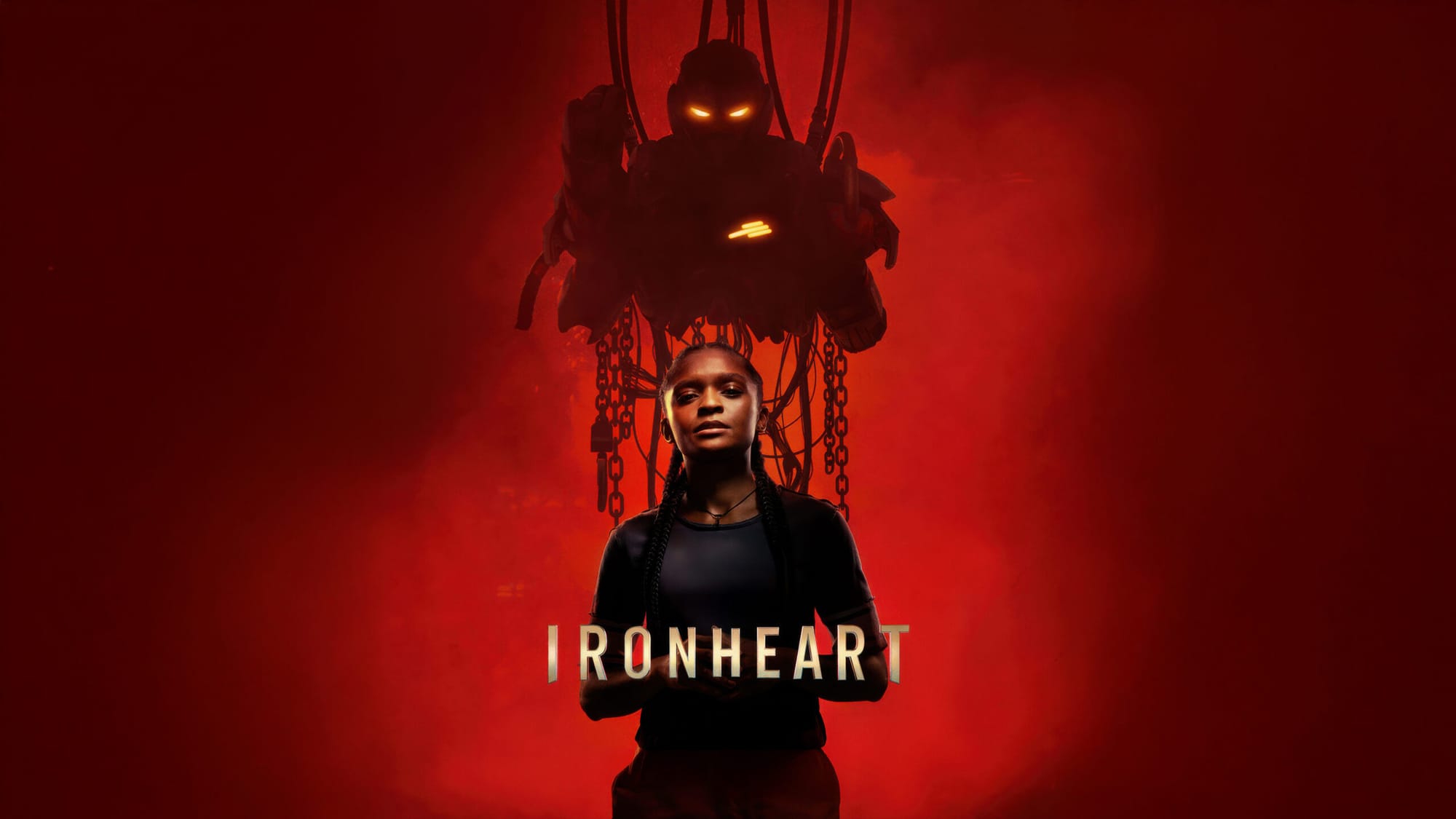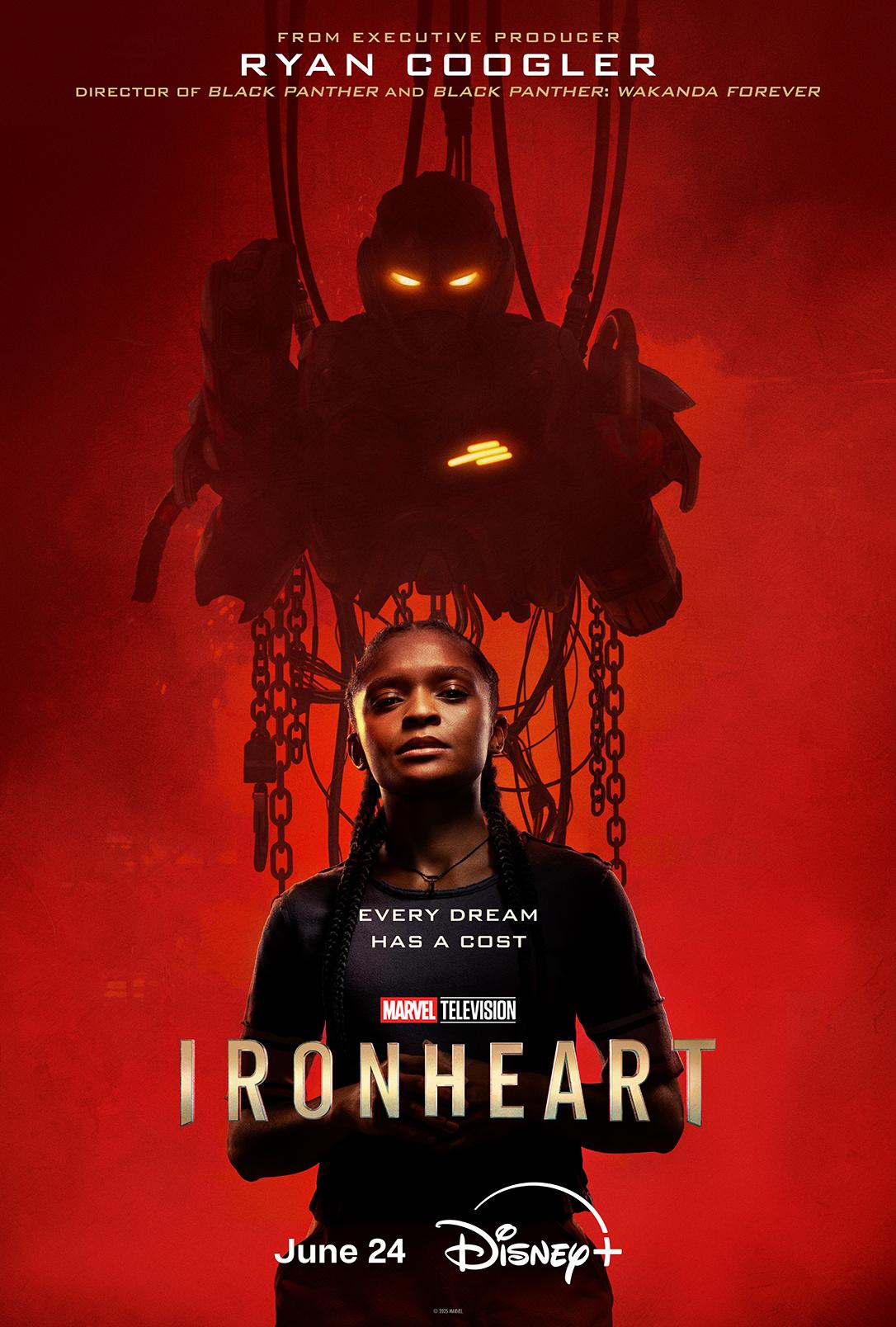Ironheart Review – Marvel’s Bold New Hero Falters in a Tale of Magic, Machines & Missed Growth

Riri Williams had everything lined up to become the next breakout hero in the Marvel Cinematic Universe. Her introduction in Black Panther: Wakanda Forever was sharp, her backstory was promising, and her tech-genius Iron Man parallels sparked real fan excitement. But Ironheart, her official solo outing on Disney+, lands somewhere between potential and disappointment.
Across six episodes, Ironheart attempts to juggle legacy, loss, power, and identity all core Marvel themes. But instead of pushing Riri toward a satisfying arc, the series seems to circle the runway, ultimately failing to give her a true takeoff.
From MIT to Magic: A Promising Start
The show kicks off with promise: Riri (played by Dominique Thorne) is a 19-year-old prodigy building Iron Man-level suits in MIT’s labs while rattling the system with her rebellious brilliance. Her character radiates the same chaotic energy that once made Tony Stark irresistible brash, brilliant, and burdened by unresolved trauma. But where Tony had access and privilege, Riri has grit and grief. Her raw ambition feels fresh, real, and overdue in a genre dominated by legacy billionaires and gods.
But the show doesn’t linger in MIT long. Soon, Riri is expelled after a cheating scandal involving her suit tech and retreats to her hometown of Chicago where magic, crime, and chaos quickly engulf her story.
The Hood vs. The Suit: Magic vs. Science
Enter Parker Robbins, aka The Hood (Anthony Ramos), a gang leader with a magical cloak and Robin Hood ambitions. He becomes both mentor and menace, tempting Riri with money, freedom, and chaos. But unlike WandaVision’s exploration of grief-fueled magic, Ironheart turns mystical conflict into background noise. The Hood’s powers are intriguing invisibility, bullet manipulation, a crew of powered misfits but his deeper motives never quite land. Is he a cautionary tale or just another flashy villain?
Magic vs. science becomes the show’s big philosophical tug-of-war. Can logic conquer emotion? Can machines beat mysticism? Unfortunately, Ironheart leans too heavily on visual effects and moral ambiguity without letting Riri ask the right questions or answer them.
The Problem With Power and Progress
Through flashbacks, we witness the trauma that defines Riri’s worldview the death of her stepfather Gary (LaRoyce Hawkins) and best friend Natalie (Lyric Ross) in a Chicago drive-by shooting. These losses fuel her drive and her cynicism. She’s not building the suit to save the world. She’s trying to control a world that once broke her.
But Ironheart never fully commits to letting Riri process or grow from that trauma. She builds suits, joins heists, battles witches but never quite becomes a hero. Instead, she reacts. And by the time she makes her final decision (to trust yet another shadowy figure), it’s not empowering it’s regressive.
N.A.T.A.L.I.E.: The AI Best Friend Twist
One of Ironheart’s most emotionally resonant threads is the emergence of N.A.T.A.L.I.E., an AI glitch that recreates Riri’s dead best friend. Think J.A.R.V.I.S. with heart. It’s a clever, if slightly underdeveloped, way to externalize Riri’s grief. At first, she resists the idea of Natalie “returning” in machine form. But over time, their banter softens, and the warmth between Thorne and Ross sells their bond even if the concept itself begs for a deeper arc.
Still, N.A.T.A.L.I.E. is the closest thing the series has to emotional grounding. It's a testament to what Ironheart could have been with more focus: a layered exploration of grief, memory, and what it means to build something to replace what you’ve lost.

High-Tech Heists, Low-Stakes Fights
Plot-wise, Ironheart attempts to channel the gritty charm of early-2000s action films. There are underground crime networks, train hijackings, secret labs, magical vaults and yet the tension never really rises. The suits look sleek, but their functionality is often lost in CGI haze. The action feels rushed. The consequences, unclear.
Even the final showdown fizzles. Where Tony’s suit-ups felt visceral, iconic Riri’s moments in armor rarely inspire. She spends more time reacting to disasters she helped create than actively shaping her world.
A Hero’s Journey Without the Hero’s Growth
By the end of the six episodes, Riri is still a genius. Still reckless. Still selfish. And still chasing power without truly reckoning with what it costs. What should have been her “return changed” moment (in classic Hero’s Journey structure) becomes a reset she hasn’t learned from her grief, her mistakes, or her miscalculations.
That’s the show’s biggest letdown: not the suit, not the magic, not the budget but the lack of growth. In a universe where Spider-Man, Wanda, and even Loki evolve across their arcs, Ironheart leaves its lead right where she started.
Marvel’s Ironheart had all the parts for a great origin story: a gifted lead, timely themes, and a bold science-meets-magic clash. But like Riri’s prototype suit, it never quite flies. The pieces don’t click. The emotional threads don’t land. The lessons don’t stick.
And maybe that’s the lesson in itself not every genius becomes a hero just because they built a suit.

